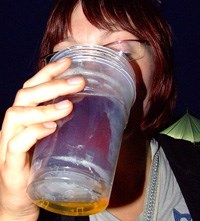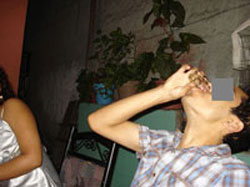
Most South Africans acknowledge the challenge we face in respect of alcohol abuse and I am broadly supportive of Health Minister Dr Aaron Motsoaledi's efforts in addressing most of our health issues. However, the recently unveiled Draft Control of Marketing of Alcoholic Beverages Bill reveals a worryingly sinister approach by the Department of Health on this issue.
There are two problems with the department's approach: it is almost always politically expedient to resort to banning as a form of constituency-pleasing, and the pro-banning lobby bases its position almost entirely on what is known as "social learning theory". This theory conceptualises the effect of advertising as a two-step process in which advertising increases consumption, which in turn produces more alcohol abuse and therefore more social and medical ills.
The reality is that this argument has been disproved, repeatedly and in many countries, by a long succession of research projects independent of the alcohol industry. Joseph Fisher, an American research professional specialising in alcohol, compiled and published a worldwide survey entitled "Advertising, alcohol consumption, and abuse" - a broad collection of studies from all available markets published as the most comprehensive and authoritative review of the subject in existence.
The body of research on the relationship between alcohol and consumption is large and varied - even when the research of alcohol manufacturers and interest groups is excluded.

In this summary, I cover 22 studies from the USA, Canada, the UK, Germany, France and Australia, as well as more than 740 research papers, journals, articles and government publications from all over the world.
In essence they investigate the relationship between alcohol advertising and consumption, as well as the relationship between advertising and alcohol experimentation. They also cover the relationship between advertising regulations and restrictions, warning labels and advertised warning messages and consumption, as well as the relationship between advertising exposure and negative behaviour such as drinking and driving.
The studies have found that moderate warning messages are the best short- and long-term deterrents to excessive alcohol consumption. The link between advertising and alcohol consumption is, at best, tenuous.
A series of experimental and other consumption-correlation measures showed that the average effect of advertising on consumption was below 1, 5% of total volume. This is an additional one-and-a-half drinks per 100 consumed.
There are three highly acknowledged, independent, quasi-experimental studies examining the relationship between advertising exposure, intoxication and abuse. The association between advertising and negative or anti-social behaviour was measured at 0.2%, 0.8% and 1.2% respectively, an average of 0.5%. Of far greater importance were the differential associations with drinking peers, and parental and peer approval.
The relationship between alcohol advertising and at-risk groups throws up one interesting result: no correlation was noted with the repeated exception of abuser groups (alcoholics and heavy users). A large body of work demonstrates a causative link between these users and exposure to advertising - in the inverse. In other words, alcohol advertising strengthens the resolve of alcoholics not to drink, rather than the reverse.

So, if advertising has such a negligible effect on consumption, why do South African manufacturers spend more than R2bn a year on it? This question goes to the heart of the purpose of the advertising industry. The answer is that in a competitive marketplace, manufacturers must fight for category and brand share.
Banning alcohol advertising will have the unintended effect of stifling competition within categories and entrenching dominant players. Existing players will maintain their market share while launching new brands to stimulate competition will be impossible. Having worked in advertising in the tobacco industry when the advertising ban was introduced, I have seen this myself.
A ban will force manufacturers to allocate large chunks of their advertising, R&D and marketing budgets to their operating profit, a significant proportion of which will find its way back to offshore shareholders as increased dividends. A ban on advertising will shut out the small entrepreneur fighting for a tiny share of the liquor market. Most importantly, an advertising ban will hurt employment opportunities in the alcohol, advertising, media and related industries - and probably even destroy existing jobs in those sectors.
Our high levels of alcohol abuse are related to many factors that need to be addressed elsewhere - primarily in the restoration of the family unit and social fabric so deeply fractured by apartheid - and in all the levers and interventions that go with that.
Banning alcohol advertising is not the answer.